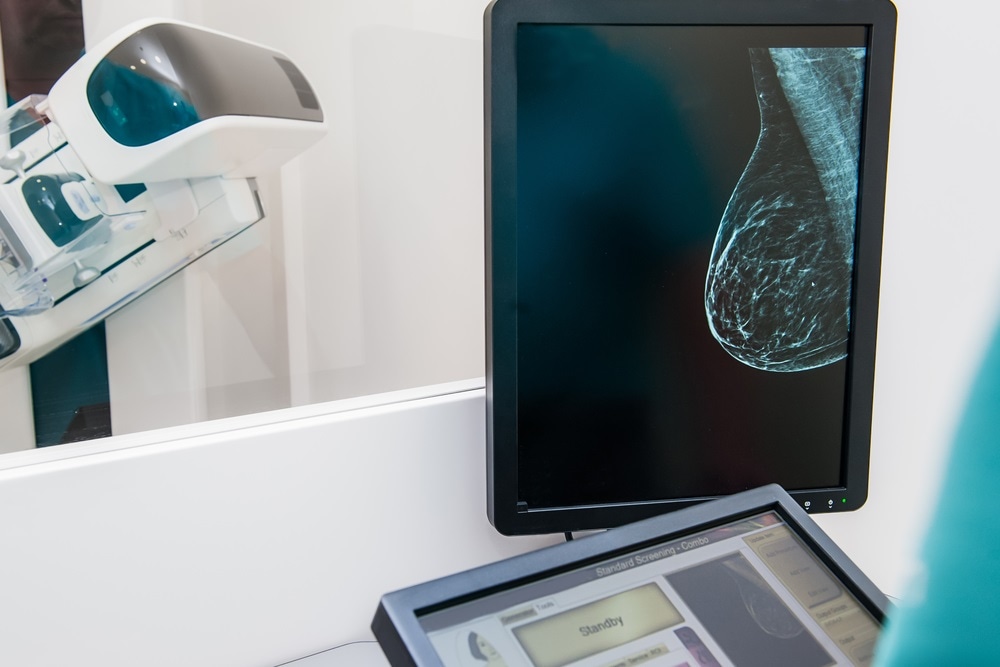A team of researchers in Sweden has established a new kind of artificial intelligence (AI) that can identify women who are at an increased risk of developing breast cancer. The study, which has been published this month in the journal Radiology, describes how the technology was developed, which has been tested to show that it is more effective than currently available predictive models.
 Image Credit: Okraysuk / Shutterstock.com
Image Credit: Okraysuk / Shutterstock.com
The innovation comes just months after a US team created a deep learning algorithm relying on machine learning to detect breast cancer with incredible precision on screening mammograms with an “end-to-end” training approach.
The team was positive that what they had achieved would be influential in the future of breast cancer diagnosis. It offers a method that can attain a high level of diagnostic accuracy, reducing false positive and false negative screening mammography results with an automatic deep learning technique.
Similar to the US team, the Swedish team recognized that current methods of breast cancer screening are not optimal, and that AI and machine learning can be utilized to improve on this greatly.
Currently, the typical method of breast cancer screening involves mammographies that are scheduled at regular intervals. However, this takes on a “one size fits all approach”, meaning that women are not able to be offered tailored approaches that would work best for them in their unique situations.
Led by Dr. Karin Dembrower at the Karolinska Institute in Stockholm, the research team wanted to use AI to establish a new kind of screening program with a higher risk assessment accuracy. Reliability and accuracy of screening are key factors in improving attendance and confidence in these procedures, which can themselves impact the effectiveness of the procedure.
The team recognized that mammograms collect a wealth of valuable data that is not being put to its full use. The method assesses the ratio of glandular and connective tissue compared to fat, which is known to be a risk factor for developing breast cancer.
However, current models do not take full advantage of this data. The researchers decided to develop a method that could take full advantage of what this data could tell them, helping to identify which women would benefit from an additional MRI scan.
A deep neural network was developed to create a new risk model for breast cancer. The network was programmed with the ability to extract an unprecedented amount of data from the mammographic images.
Previous images would have usually been studied by a radiologist, leaving room for errors due to interpretation and presenting limitations in that all risk-relevant information can not be captured by the image.
On the other hand, the new model was developed to learn from the data captured by over 2,000 mammograms conducted between 2008 and 2012. The network was able to use the information in these images, along with data on the outcomes of the studied women’s health journeys to establish a method of detecting women who were at a high risk of developing breast cancer in the future, and therefore was successful at reducing the false-negative rate.
Comparisons with traditional density-based models showed that the neural network was more effective. The study supports the future use of AI in the diagnosis of breast cancer. It also demonstrates the wider use of AI, in enhancing and optimizing current clinical methods to improve outcomes of not just breast cancer, but also other types of cancer and other diseases.
The scientists involved in the project see their model being used in the future of breast cancer screening processes. They are positive that the method can be further improved as the networks are exposed to more and more data.
Source:
AI improves breast cancer risk prediction. EurekAlert. Avaiable from: https://www.eurekalert.org/emb_releases/2019-12/rson-aib121019.php